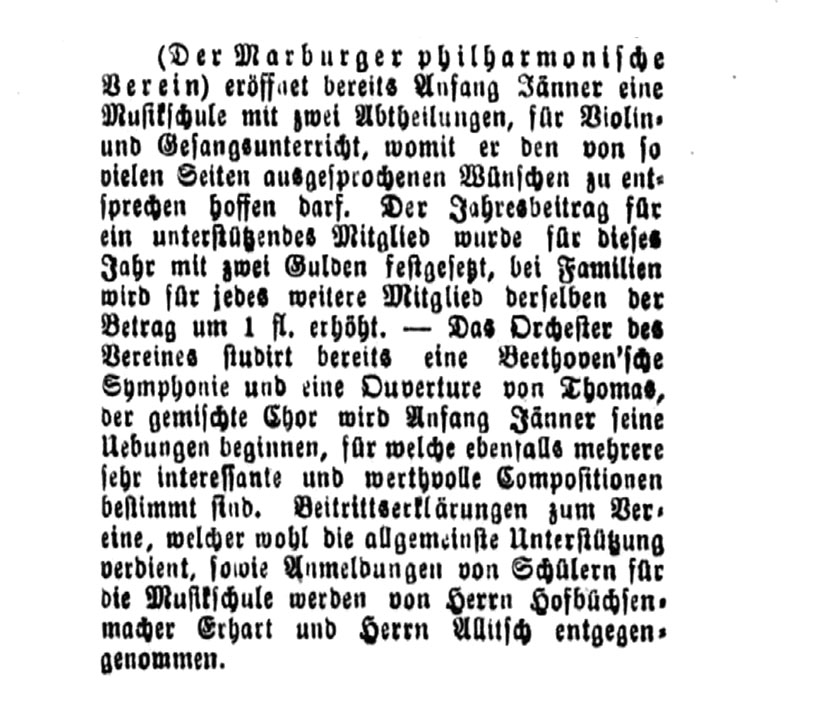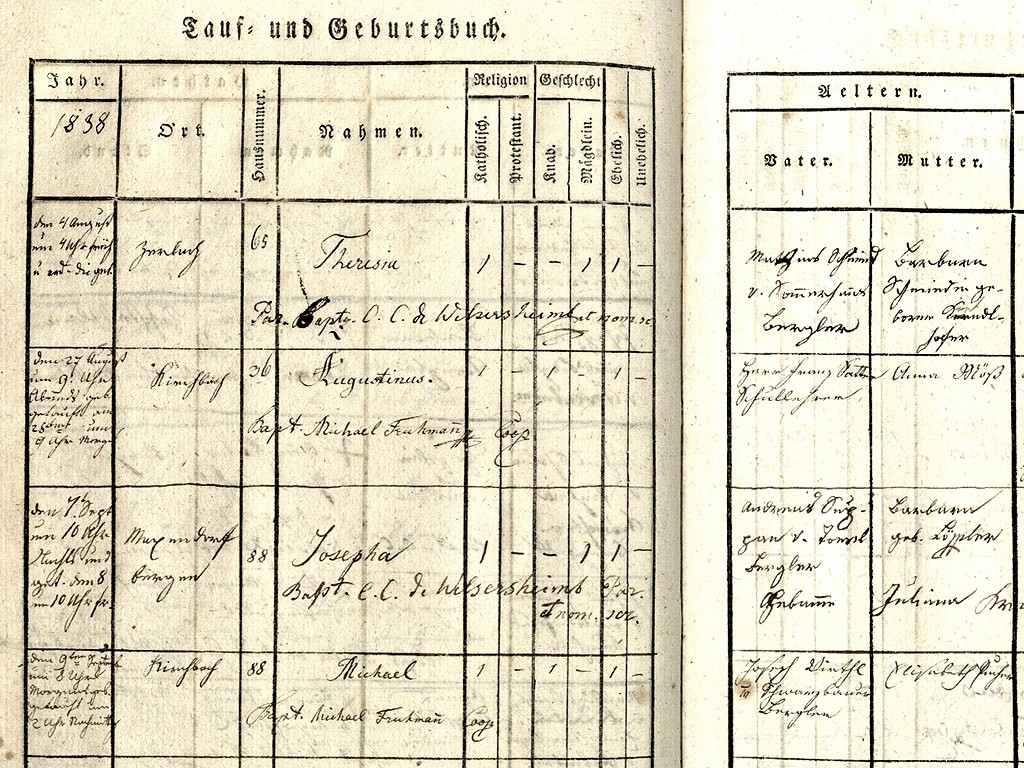VIRTUAL EXHIBITION
Join us on a journey of discovery, explore the musical heritage and experience the interconnected cultural roots of Europe.
Immigrant Musicians
V. MUSICAL LIFE IN MARIBOR
German theater troupes performed in Maribor even before 1785, and local theater lovers also gave occasional performances. In the early nineteenth century, music societies were founded throughout Styria. The Maribor Music Society was founded in 1825, on the initiative of Anton Tremmel, a teacher from Szentgotthárd. The purpose of the music society was to cultivate vocal and instrumental music for church performances and public secular concerts. In 1846, the Maribor Men’s Choral Society (Marburger Männergesangverein), which cultivated German folk and art songs for almost a hundred years, emerged from the Music Society. In the 1840s, the Music Society gave concerts and literary evenings in cooperation with the Amateur Society (Dilletantenverein). In the first half of the nineteenth century, various theater troupes were also active in the city, and local theater enthusiasts gave theater performances and concerts in the Maribor theater in cooperation with the Music Society. In 1855, the municipality founded the Municipal Chapel (Städische Musik-Kapelle), which was composed of members of Count Kinski’s regimental band, the Music Society, and former pupils of the society’s music school. Two years after the opening of the workshops, the Maribor Southern Railway Choral Society (Marburger Südbahnliedertafel) was founded in 1865, followed by the Southern Railway Workshop Band (Südbahn-Werkstätten-Kapelle in 1869. Some of the musicians had previously played in various military bands. The 47th Regiment Band also performed in the city and gave promenade concerts, and occasionally the 17th Regiment Band from Ljubljana and the military band from Klagenfurt made guest appearances in Maribor. In 1881, the Maribor Philharmonic Society (Marburger philharmonischer Verein) was founded to perform instrumental and vocal music and raise the general level of musical culture in the city.
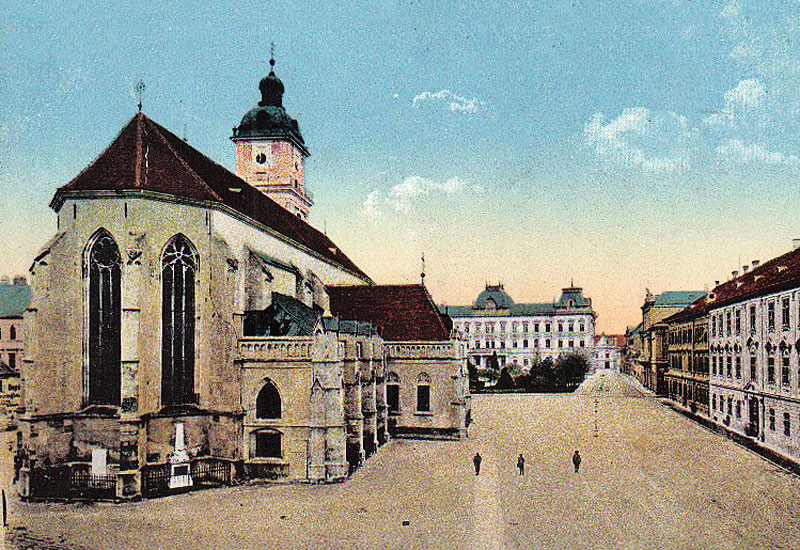
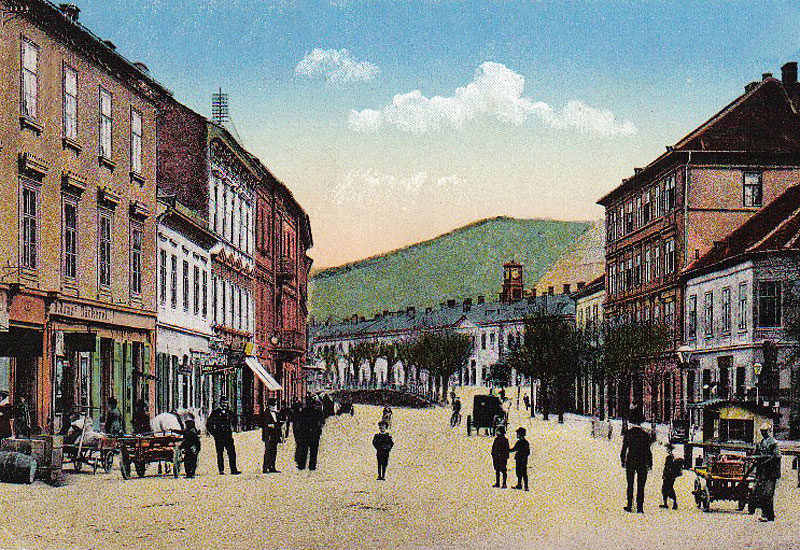
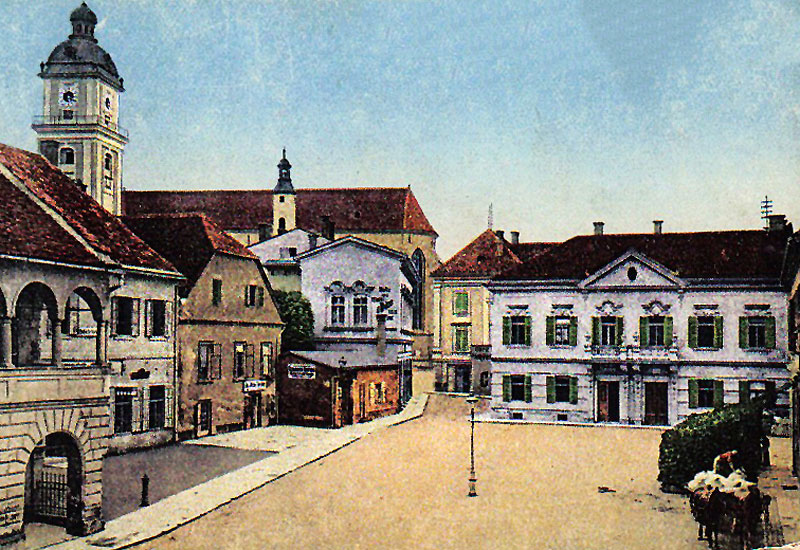
Establishment
PHILHARMONISCHER VEREIN
The Maribor Philharmonic Society was founded in December 1881 and began its activities in January 1882. Augustin Satter (1838–1894) from Kirchbach, a music teacher at the Pedagogical College and a chorister in the Maribor Cathedral, was elected the first conductor of the orchestra. The aim of the society was to perform instrumental and vocal music in concerts and church performances, with an emphasis on classical works. Vocal and orchestra rehearsals began in early January 1882, and a music school was opened with a vocal and violin section. In addition to Satter, Gabrijel Majcen and the former Celje music director Anton David from Vöcklabruck also taught at the school. The members were noblemen, music lovers, important officers, wealthy citizens of Maribor, and priests as well as church musicians from Maribor, such as Peregrin Manich (1812–1897) and Rudolf Wagner (1851–1915).
Musicians’s Origins
PHILHARMONISCHER VEREIN
More than forty important foreign musicians were active in the city in the nineteenth century. They worked in the city theater, in military bands, as teachers at various schools, and especially in the Maribor Philharmonic Society, as performers, conductors, composers, and teachers. The musicians came mainly from Bohemia and smaller Austrian towns, with the exception of Alfred Klietmann (1884–1939) from Basel and Emil Füllekruß (1856–1942) from Szczecin. They studied mainly in Prague and Vienna, and some also in Berlin, Leipzig, Brno, and Budapest. As teachers at the Maribor Philharmonic, they made a significant contribution to music education by modernizing the curriculum, raising the level of teaching, and introducing individual instrumental lessons.
The origin of musicians employed at the Marburger Philharmonischer Verein
Concert Life
PHILHARMONISCHER VEREIN
The first Philharmonic Society concert was held at Grand Casino Hall on 6 February 1882. The choir consisted of forty singers and the orchestra of thirty-five musicians. In subsequent years, the orchestra was augmented by professional musicians from the Theater Orchestra and the Southern Railway Brass Band. The society was required to present four concerts per season (one of which was chamber music), and they gave more than two hundred concerts between 1882 and 1913. Concert programs included overtures or shorter works for orchestra, supplemented by concertos for violin, piano, or cello with orchestral accompaniment, chamber works, and works for various vocal ensembles. In addition to local foreign soloists, there were also guest performers from Graz and Vienna. Adolf Binder (1845–1901) from Bohemia was the most active in the Philharmonic Society concerts as a soloist, conductor, and composer. Apart from Binder, Hans Rosensteiner (1864–1911), Alfred Klietmann (1884–1931), Carl Maria Walner (1861–1916), and Willy Köhler also made important contributions to concert life in Maribor.
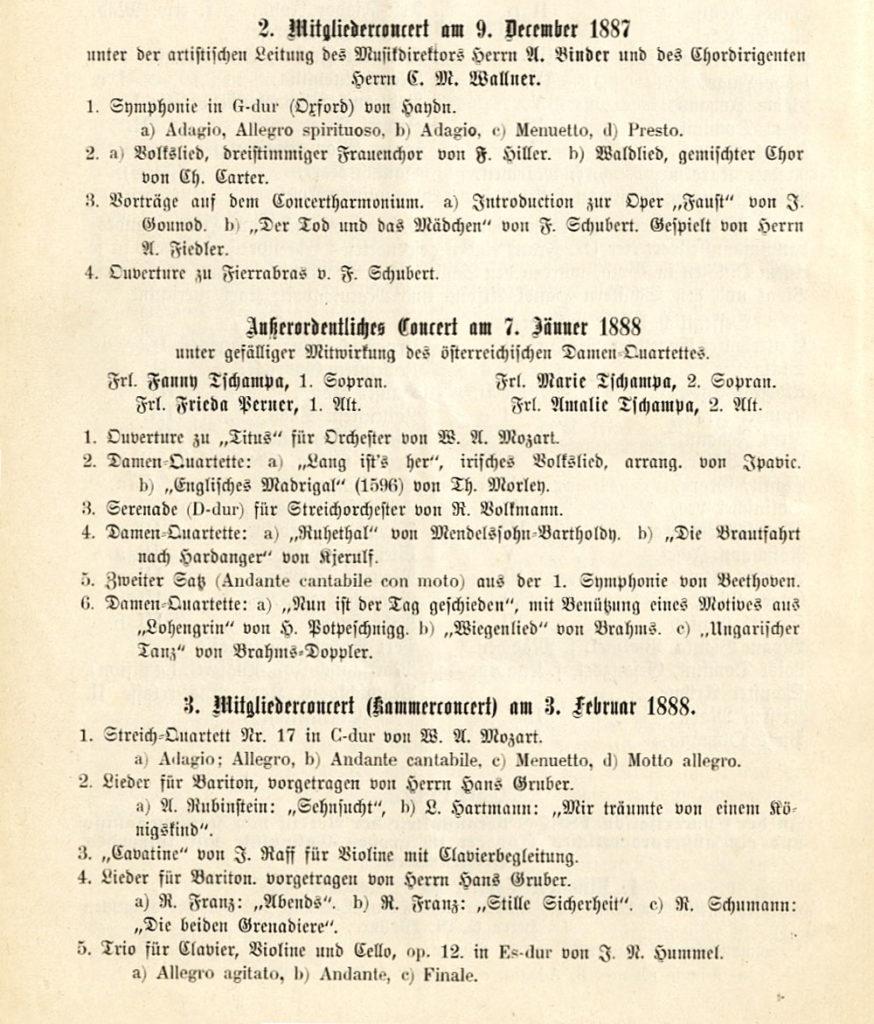
Concerts organised by Marburger philharmonischer Verein
Music Teachers from abroad

